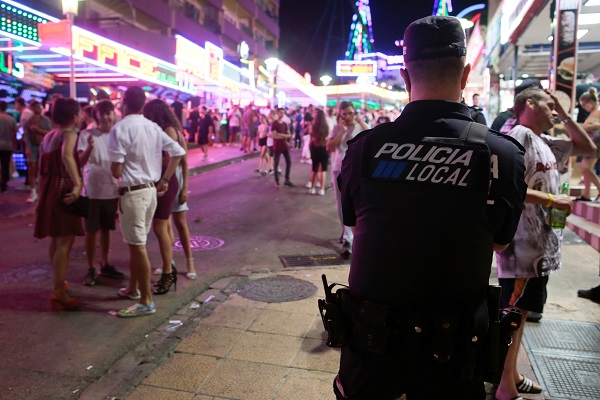The Balearic Islands enforce stricter rules on late-night alcohol sales to curb anti-social behaviour.
- A ban on alcohol sales is enacted in Majorca and Ibiza from 9.30pm to 8am.
- The restrictions apply to specific tourist-heavy areas amidst government efforts to reduce alcohol-related disruptions.
- Businesses fear the regulations will redirect tourists to other, less restricted areas.
- The local government aims for a long-term solution in civil behaviour among tourists.
The Balearic Islands have implemented a new policy to restrict alcohol sales between 9.30pm and 8am in specific areas of Majorca and Ibiza known for high tourist activity. This measure is aimed at reducing excessive alcohol consumption and the resulting anti-social behaviour that has been a concern in these regions.
Tourists visiting Llucmajor, Palma, and Calvia in Majorca, as well as San Antonio in Ibiza, will need to adjust to the new rules which prohibit consuming alcohol in public spaces. However, these restrictions do not apply to consumption in designated areas such as bars and terraces, providing a controlled environment for alcohol consumption.
Individuals found drinking outside of approved zones face fines ranging from €500 to €1,500. The policy, enforced from Saturday, is part of a broader strategy to manage alcohol-related issues that have previously led to disturbances in public order.
The ban extends to party boats, which are now prohibited from operating within one nautical mile of the affected destinations. Furthermore, these vessels cannot pick up or drop off passengers in these areas, closing a loophole that facilitated easy access to alcohol for tourists at sea.
The Balearic Government intends to spend up to €16 million on measures including law enforcement, inspections, and public awareness campaigns focused on the identified ‘tourism excess’ zones. They hope to instil a sense of responsible behaviour that will eventually make these regulations obsolete.
There is some opposition from businesses operating within the restricted areas who argue that tourists might simply choose neighbouring resorts not subject to these laws, potentially impacting local economies. Nevertheless, authorities believe that by enhancing the overall tourist experience through civility and safety, the destinations will ultimately benefit.
Luis Pomar from the Balearic Islands tourism council noted that the law, originally introduced in 2020, has positively influenced visitor behaviour. He expressed optimism that with continued effort, the legislation may become redundant in a few years as tourists learn to adapt to expectations of decorum in these popular zones.
The Balearic Islands’ enforcement of stricter alcohol sale rules reflects a strategic effort to promote responsible tourism and mitigate disruptions.

